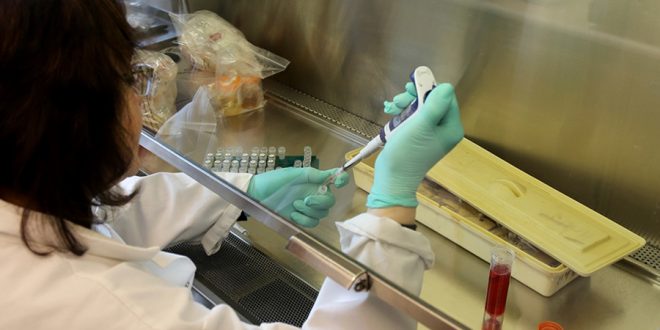Scientists in Canada and the US have developed a new type of vaccine which has had success against the zika virus in lab testing.
Université Laval’s Infectious Disease Research Centre (IDRC) and Centre de recherche du CHU de Québec-Université Laval (CHU) are proud to announce that the first clinical study for a Zika vaccine in Canada is set to begin in Quebec City. “We’re very proud to be part of the first international team in the world to complete all of the steps in the regulatory process and to be authorized by the Food and Drug Administration (FDA) and Health Canada to develop a Zika vaccine,” said Gary Kobinger, doctor of microbiology, professor in Université Laval’s Faculty of Medicine, researcher with Centre de recherche du CHU, director of IDRC, and a global authority on vaccine research.
The Zika virus is transmitted primarily by mosquitoes. Although most cases are relatively mild, women who are infected while pregnant are at risk of miscarrying or giving birth to children with abnormally small heads—a condition known as microcephaly. “There is no existing treatment or vaccine for Zika. The vaccine currently being developed will be administered to humans for the first time as part of the clinical study. CHU de Québec-Université Laval is one of the three leading research centres involved in the vaccine study and we’re very proud of that,” said Gertrude Bourdon, president and CEO of CHU. “This study under Professor Gary Kobinger’s supervision is further proof of our institution’s global leadership in the field of infectious disease research,” said Rénald Bergeron, dean of Université Laval’s Faculty of Medicine.
Université Laval’s Infectious Disease Research Center (IDRC) is the only Canadian centre involved in the study, which is being conducted in close collaboration with two other centres in the United States. In the coming days, under the guidance of Gary Kobinger, Dr. Sylvie Trottier and her team will begin an extensive clinical study to test a new Zika vaccine at the Canadian site in Quebec City. IDRC is currently looking for adult volunteers who are in good health and would like to participate in the study.
Agencies/Canadajournal
 Canada Journal – News of the World Articles and videos to bring you the biggest Canadian news stories from across the country every day
Canada Journal – News of the World Articles and videos to bring you the biggest Canadian news stories from across the country every day



